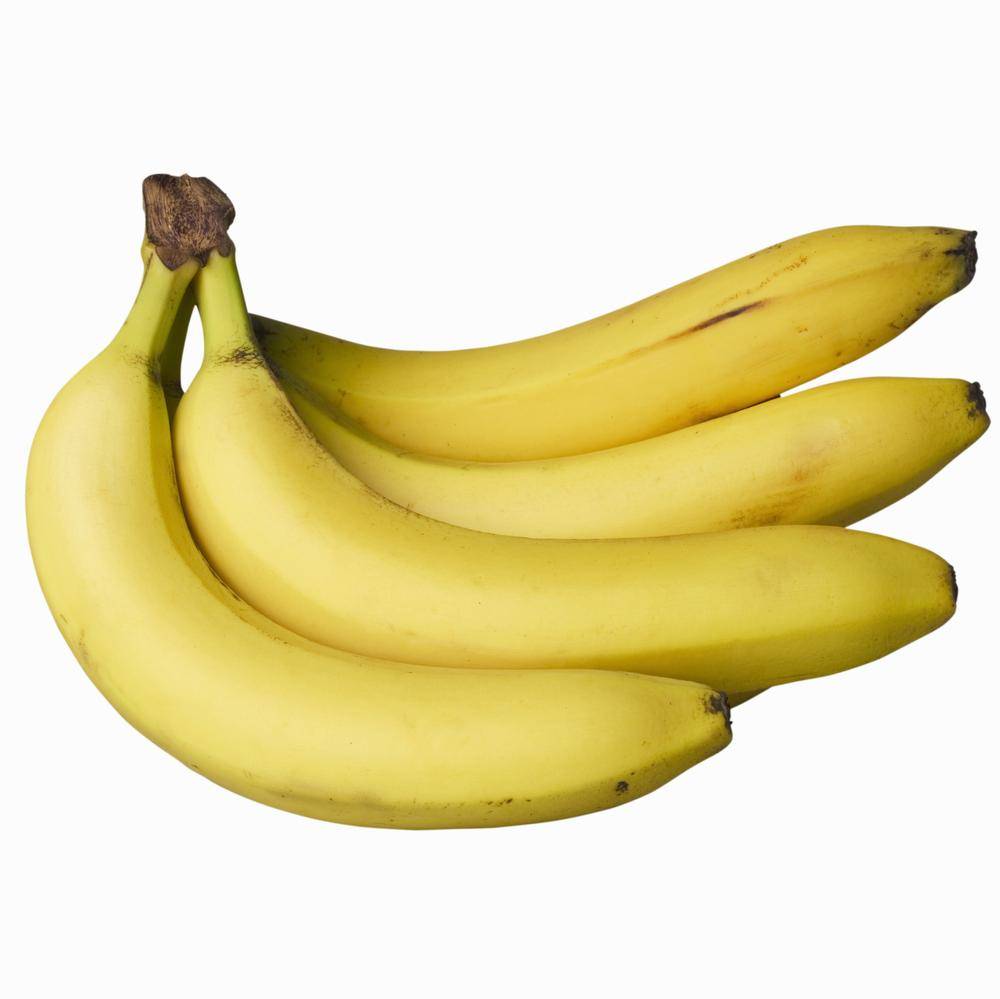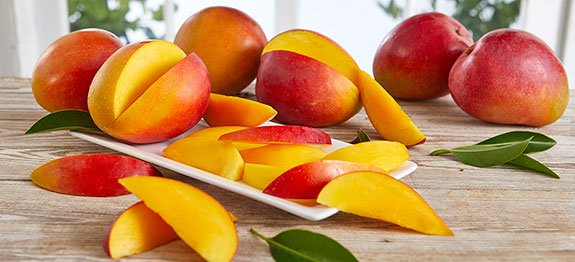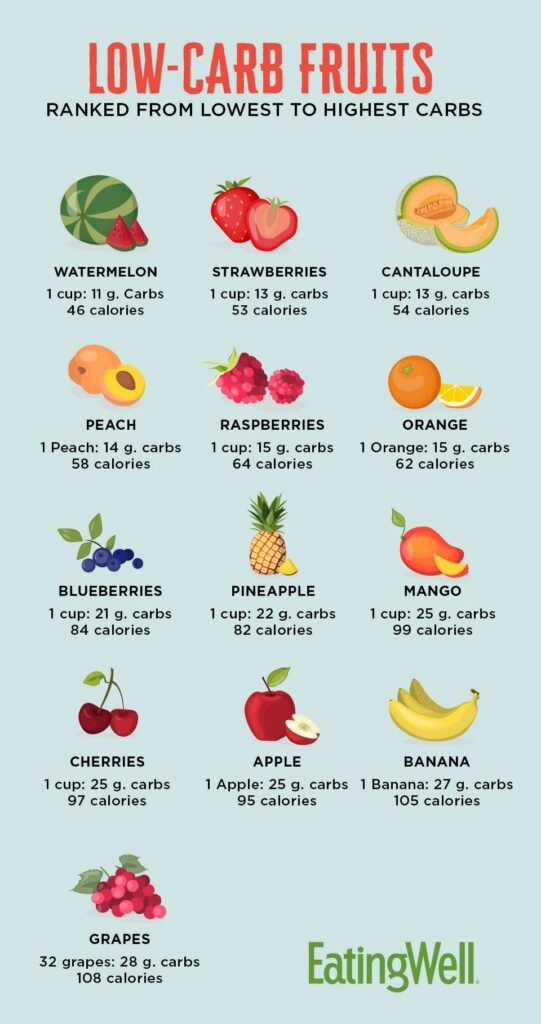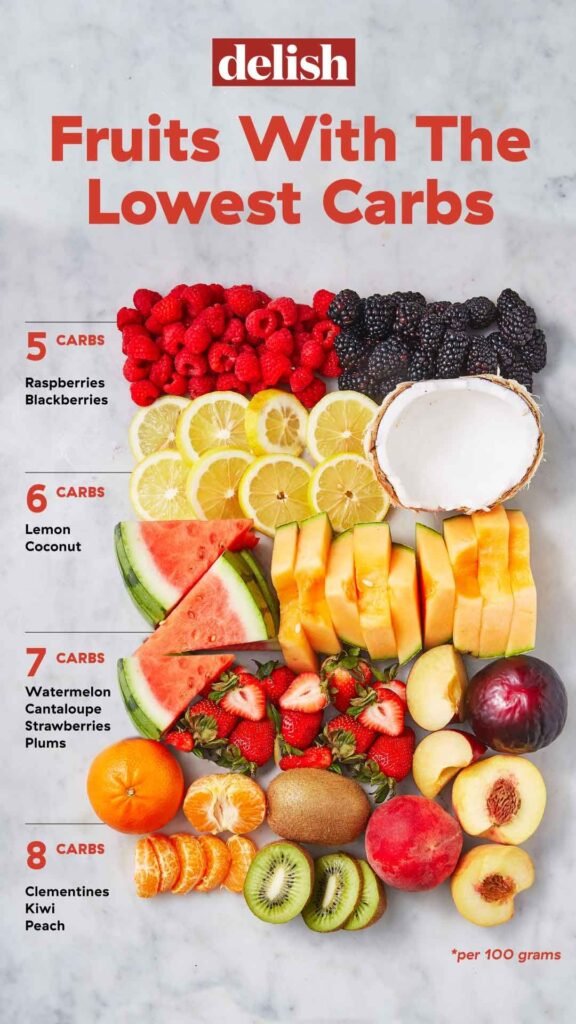Did you know that bananas are not only delicious but also packed with high levels of carbohydrates? These natural wonders provide a quick source of energy and are a great addition to your daily diet. Whether you enjoy them on their own or use them as a versatile ingredient in smoothies, desserts, or even savory dishes, bananas are a healthy option that can keep you energized throughout the day. So, next time you reach for a snack, consider grabbing a banana to satisfy your cravings and fuel your body.
What Are Carbohydrates?
Carbohydrates are one of the three macronutrients that our bodies need in order to function properly. They are molecules made up of carbon, hydrogen, and oxygen atoms, and they provide us with energy. Carbohydrates can be found in a variety of foods, including fruits, vegetables, grains, and dairy products. They come in different forms, such as sugars, starches, and fibers, each with its own unique properties and functions in the body.
Definition of carbohydrates
Carbohydrates, also known as carbs, are organic compounds that are made up of carbon, hydrogen, and oxygen atoms. They are one of the main sources of energy for our bodies and play a crucial role in various physiological processes. Carbohydrates can be classified into three main types: sugars, starches, and fibers. Sugars are simple carbohydrates that are quickly digested and provide a rapid source of energy. Starches are complex carbohydrates that take longer to break down and release energy more gradually. Fibers, on the other hand, are indigestible carbohydrates that promote healthy digestion and regulate bowel movements.
Functions of carbohydrates in the body
Carbohydrates serve several important functions in the body. One of their primary roles is to provide energy. When we consume carbohydrates, our bodies break them down into glucose, which is then used by our cells as a source of fuel. Carbohydrates also play a key role in brain function, as the brain relies heavily on glucose for its energy needs. In addition, carbohydrates are involved in the synthesis of certain molecules, such as DNA and RNA, and they play a vital role in the immune system. Furthermore, carbohydrates can be stored in the body as glycogen, which can be used later on to provide energy during periods of fasting or intense physical activity.
Nutritional Profile of Bananas
Bananas are a popular and nutritious fruit that are known for their high carbohydrate content. They are a rich source of various vitamins and minerals, including vitamin C, potassium, and vitamin B6. Let’s take a closer look at the nutritional profile of bananas.
Calories in a banana
A medium-sized banana contains approximately 105 calories. This makes bananas a relatively low-calorie food, making them a healthy and satisfying snack option.
Carbohydrate content in a banana
Bananas are known for their high carbohydrate content. A medium-sized banana contains around 27 grams of carbohydrates. These carbohydrates are primarily in the form of sugars, which provide a quick source of energy.
Fiber content in a banana
Bananas are also a good source of dietary fiber. A medium-sized banana contains about 3 grams of fiber. Dietary fiber is important for maintaining a healthy digestive system and can help regulate bowel movements.
:max_bytes(150000):strip_icc()/bananas_annotated-ed6ce63a91d74341be88c12b1f6edcb8.jpg)
Types of Carbohydrates in Bananas
Bananas contain different types of carbohydrates, including simple sugars and starches. These carbohydrates have distinct characteristics and effects on the body.
Simple sugars in bananas
One of the main types of carbohydrates found in bananas is simple sugars, such as fructose, glucose, and sucrose. These sugars provide a quick source of energy as they are rapidly digested and absorbed into the bloodstream. They are especially beneficial for athletes or individuals needing a boost of energy.
Starch in bananas
Bananas also contain starch, which is a complex carbohydrate made up of long chains of glucose molecules. Starch takes longer to break down and provides a more sustained release of energy compared to simple sugars. This makes bananas a great option for maintaining energy levels throughout the day.
Glycemic Index of Bananas
The glycemic index (GI) is a measure of how quickly and how much a food raises blood sugar levels. Foods with a high GI cause a rapid spike in blood sugar, while foods with a low GI result in a slower and more gradual increase. Let’s explore the glycemic index of bananas.
Explanation of glycemic index
The glycemic index is a scale that ranks carbohydrates based on their effect on blood sugar levels. Foods with a high GI are quickly digested and absorbed, causing a rapid increase in blood sugar. These foods are often referred to as high glycemic foods. On the other hand, foods with a low GI are digested and absorbed more slowly, resulting in a more gradual rise in blood sugar levels. These foods are considered low glycemic foods. The GI scale ranges from 0 to 100, with pure glucose having a GI of 100.
Glycemic index of bananas
Bananas have a glycemic index value that ranges from 42 to 62, depending on the ripeness. This places them in the medium glycemic range. While this may seem relatively high, it’s important to consider that bananas also contain fiber, which helps buffer the rise in blood sugar levels. Additionally, the presence of resistant starch in bananas, which is a type of starch that resists digestion, further contributes to a slower and more controlled release of glucose into the bloodstream.
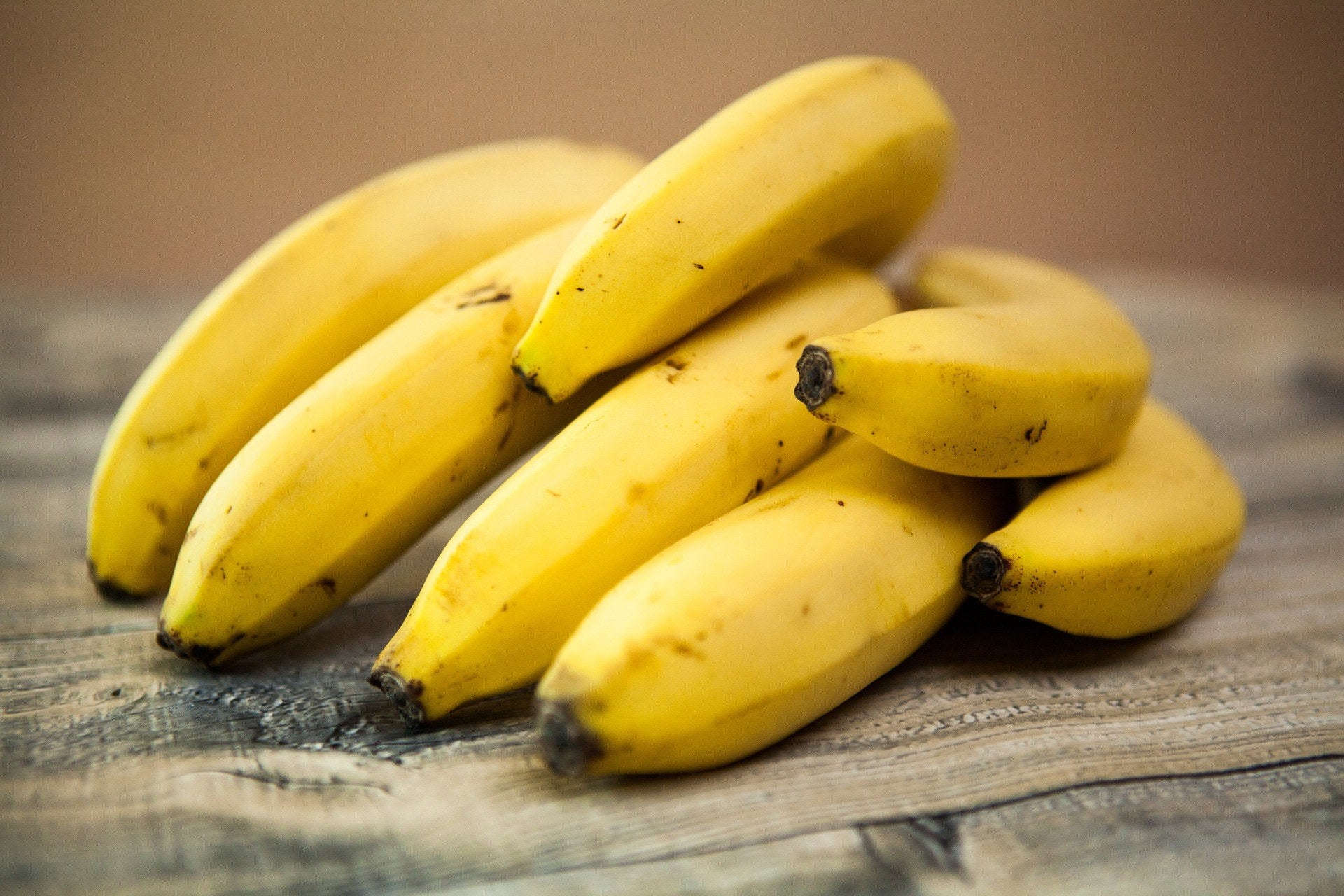
Carbohydrates and Energy Levels
Carbohydrates play a crucial role in maintaining energy levels throughout the day. They are the body’s preferred source of fuel and are essential for optimal physical and mental performance. Let’s explore the importance of carbohydrates for energy and how bananas can help provide the energy you need.
Importance of carbohydrates for energy
Carbohydrates are the body’s primary source of energy. When we consume carbohydrates, they are broken down into glucose, which is then transported to our cells and used as fuel. Glucose is particularly important for the brain, which relies almost exclusively on carbohydrates for its energy needs. Without an adequate supply of carbohydrates, our energy levels can drop, resulting in fatigue and decreased productivity.
How bananas provide energy
Bananas are an excellent source of carbohydrates, making them a great energy-boosting food. The carbohydrates in bananas are easily digested and quickly converted into glucose, providing a rapid source of fuel for our bodies. Whether you need an energy boost before a workout or a mid-afternoon pick-me-up, a banana can provide you with the carbohydrates you need to power through your day.
Balancing carbohydrate intake for sustained energy
While carbohydrates are essential for energy, it’s important to balance their intake to ensure sustained energy levels. Consuming too many carbohydrates at once, especially those with a high glycemic index, can lead to a rapid spike in blood sugar levels followed by a crash. To maintain steady energy levels, it’s recommended to incorporate a variety of carbohydrates, including fruits like bananas, whole grains, and vegetables into your diet. This allows for a more gradual release of glucose into the bloodstream and helps avoid energy fluctuations.
Carbohydrates and Exercise
Carbohydrates play a crucial role in fueling our bodies during exercise. They provide the necessary energy for physical activity, improve endurance, and aid in muscle recovery. Let’s explore how carbohydrates, including bananas, can enhance your exercise performance.
Carbohydrate loading before exercise
Carbohydrate loading is a strategy used by athletes to maximize carbohydrate stores in the body before a prolonged endurance event. By increasing carbohydrate intake in the days leading up to the event, athletes can increase their glycogen stores, which can help delay fatigue during exercise. Including bananas in the carbohydrate loading process can provide a delicious and convenient source of carbohydrates.
Bananas as a pre-workout snack
Bananas make for an ideal pre-workout snack due to their carbohydrate content. Consuming a banana before exercise provides a quick source of energy and helps fuel your workout. The carbohydrates in bananas are easily digested, ensuring that the energy is readily available for your muscles.
Replenishing carbohydrates post-workout
After exercise, it’s important to replenish your carbohydrate stores to aid in muscle recovery and glycogen restoration. Consuming carbohydrates post-workout helps to replenish glycogen stores and promote muscle repair. Including a banana as part of your post-workout snack or meal can provide a convenient source of carbohydrates to aid in recovery.
Carbohydrates and Weight Management
Carbohydrates have often been associated with weight gain, leading to misconceptions about their role in weight management. However, when consumed in moderation and as part of a balanced diet, carbohydrates, including those found in bananas, can actually support weight management efforts.
Role of carbohydrates in weight management
Carbohydrates play a crucial role in weight management for several reasons. First, they provide energy, which is necessary for physical activity and exercise. Regular physical activity is essential for maintaining a healthy weight. Second, carbohydrates can help keep you feeling full and satisfied, which can prevent overeating and promote portion control. Finally, carbohydrates, especially those found in whole foods like fruits and vegetables, provide essential vitamins, minerals, and fiber that contribute to overall health.
Effect of bananas on satiety
Bananas are known for their ability to promote a feeling of fullness and satisfaction. This is mainly due to their fiber content. Fiber expands in the stomach, helping to increase satiety and prevent overeating. Including bananas as part of meals or snacks can help curb hunger cravings and support healthy eating habits.
Incorporating bananas into a balanced diet
Incorporating bananas into a balanced diet is a great way to enjoy their nutritional benefits while maintaining a healthy weight. Pairing a banana with a source of protein, such as Greek yogurt or nut butter, can create a balanced snack that provides carbohydrates, protein, and healthy fats. Adding sliced bananas to oatmeal or smoothies can also contribute to a nutritious and satisfying meal.
Carbohydrates and Digestive Health
Carbohydrates, particularly dietary fiber, play a crucial role in supporting digestive health. Fiber helps promote regular bowel movements, maintain a healthy gut microbiome, and prevent digestive disorders. Let’s explore how bananas, which are a good source of dietary fiber, can contribute to digestive health.
Dietary fiber in bananas
Bananas are a good source of dietary fiber, which is a type of carbohydrate that cannot be digested by the body. A medium-sized banana contains approximately 3 grams of fiber. Dietary fiber adds bulk to the stool, promotes regular bowel movements, and helps prevent constipation.
Effects of fiber on digestion
Fiber plays an important role in maintaining a healthy digestive system. It adds bulk to the stool, which helps prevent constipation and promotes regular bowel movements. Fiber also contributes to the overall health of the gut by promoting the growth of beneficial bacteria and maintaining a healthy gut microbiome. Additionally, fiber can help regulate blood sugar levels and lower cholesterol levels.
Fiber and promoting bowel regularity
The fiber content in bananas can help promote bowel regularity and prevent digestive issues such as constipation. Consuming an adequate amount of fiber from sources like bananas can help add bulk to the stool and facilitate the movement of waste through the digestive tract. Including bananas as part of a well-balanced diet can contribute to a healthy and regular digestive system.
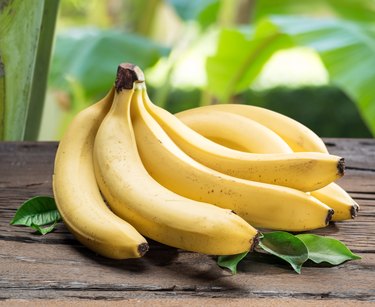
Carbohydrates and Blood Sugar Levels
Carbohydrates have a direct impact on blood sugar levels. The glycemic load of a food, which takes into account both the quality and quantity of carbohydrates, can help determine how a food affects blood sugar levels. Let’s explore the impact of carbohydrates on blood sugar levels and how bananas can be incorporated into a balanced diet.
Impact of carbohydrates on blood sugar
Carbohydrates are broken down into glucose, which is then released into the bloodstream and raises blood sugar levels. The rate at which blood sugar levels rise depends on the type and amount of carbohydrates consumed. Foods with a high glycemic index or a high glycemic load cause a faster and higher increase in blood sugar levels. On the other hand, foods with a low glycemic index or a low glycemic load result in a slower and more gradual rise in blood sugar.
Glycemic load of bananas
While bananas have a moderate glycemic index, their glycemic load is relatively low. The glycemic load takes into account both the quantity of carbohydrates in a food and its effect on blood sugar levels. The presence of fiber and resistant starch in bananas helps slow down the digestion and absorption of carbohydrates, resulting in a lower glycemic load. As a result, bananas have a less significant impact on blood sugar levels compared to high glycemic foods.
Managing blood sugar with bananas
Bananas can be incorporated into a balanced diet to help manage blood sugar levels. Since bananas have a moderate glycemic index and a low glycemic load, they can be part of a meal or snack that includes other sources of carbohydrates, protein, and healthy fats. Pairing a banana with a source of protein and fiber can help slow down the release of glucose into the bloodstream, preventing a rapid spike in blood sugar levels.
Conclusion
Bananas are a delicious and nutritious fruit that is high in carbohydrates. They provide a quick source of energy, contribute to a balanced diet, support digestive health, and can be enjoyed as part of a healthy lifestyle. Whether you need an energy boost, a pre-workout snack, or a natural source of dietary fiber, incorporating bananas into your diet is a smart and tasty choice. Remember to enjoy bananas in moderation and pair them with other nutrient-dense foods to ensure a well-rounded and balanced diet.


